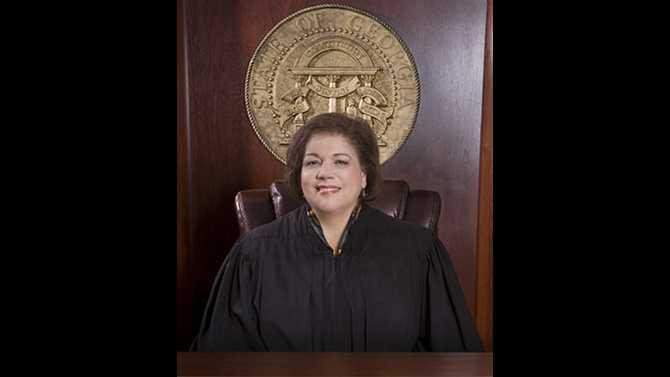From the base of a rural Georgia court room, Judge Sheri Roberts carries a message across her home state and the nation: we can do a lot better by the young people served by our courts.
And it’s through her dedication to work with youth and the juvenile court system that has led her to be selected for receive the Louisa Lucy Flowers Champion for Change Award, at the 9th annual Models for Change national conference in Washington, DC on Monday, Dec. 15.
Since taking her seat on the bench in 2009, Judge Roberts has led Newton County in identifying and implementing effective services and proven approaches for the youth in her court. She takes a holistic approach to her work, addressing the needs of the entire family to affect improved outcomes for the children she serves. And she is actively sharing what she’s learned with her peers.
“Judge Roberts works from sheer passion, building bridges across agencies to make a difference for youth and families,” says Kathy Herren, retired Deputy Director for Georgia Department of Family and Children Services. “Not only has she gone an extra step to understand the practice, she is personally invested, making it a point to step off the bench to meet families where they are.”
Prior to her involvement with Models for Change, Judge Roberts’ accomplishments from the bench include the implementation of a gender-specific girls diversion program, the expansion of juvenile Drug Court services, and providing passionate leadership among the local partnership of community agencies, strengthening the level of collaboration and dedication to serving youth and families. Due to the engagement and depth of Newton County’s commitment, it was selected to work with the Models for Change Dual Status Youth Initiative.
“Her persuasive and respectful style, recognizing the strengths brought to the work by directors, managers, case workers, multiple youth serving agencies, and the real experiences of the youth and families in the court system, has resulted in an array of policy and practice changes that should be of interest to all juvenile courts,” said John Tuell, Robert F. Kennedy Children’s Action Corp. “These changes have contributed to a cross-organizational culture that has embraced and implemented the core principles of the developmental approach and balancing accountability for each youth.”
These principles and practices in the court and the community have demonstrated a proven relationship to improved outcomes for both youth and the juvenile justice system. The Newton County Practice Manual, resulting from the County’s work in the Dual Status Youth Initiative, is easily one of the premier blueprints for jurisdictions across the country to replicate this work.
Sharing her experiences and encouraging others to improve their practices has become a passion for Judge Roberts. She has deliberately established strong connections with state agencies, such as the Governor’s Office for Children and Families, the Department of Juvenile Justice, and the Department of Family and Children Services to ensure knowledge of best practices and to promote opportunities to replicate Newton County practices in other jurisdictions.
As part of the Robert F. Kennedy National Resource Center’s Dual Status Youth Practice Network, she is a very willing spokesperson and peer mentor among her judicial colleagues and the representatives from multiple youth serving disciplines across Georgia. She doesn’t limit her work to Georgia though. She is a member of the Delinquency Court Improvement Initiativen for the National Council of Juvenile and Family Court Judges.
“It is appropriate that Judge Roberts should get an award named after one of the founders of the juvenile courts,” said Tuell. “Her actions every day show a deep commitment to the principle on which the court was founded and her dedication to making it as good as it can be.”
The Louisa Lucy Flowers Champion for Change Award is named after Louisa Lucy Flower, one of the founders of the juvenile court in Chicago in 1899.





